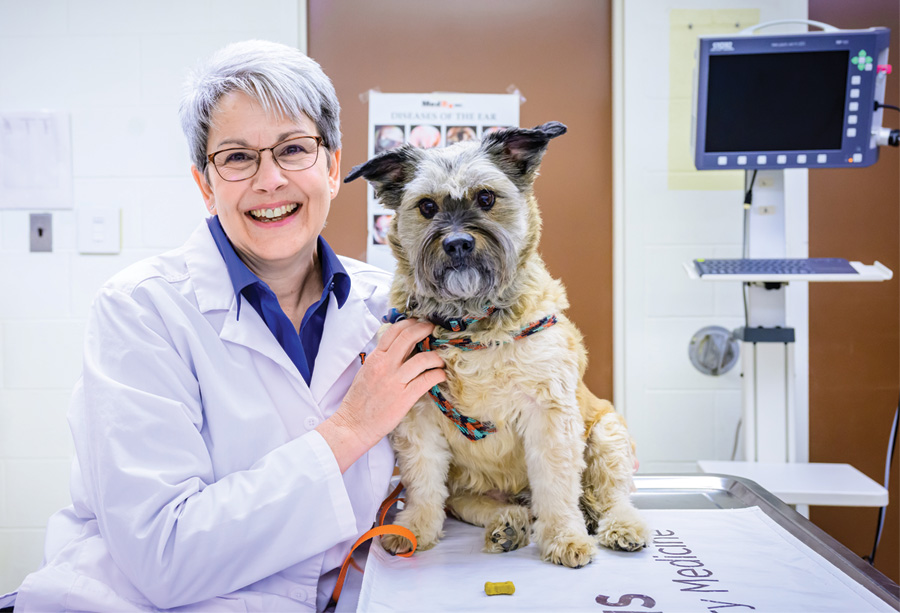Opioids are commonly used in the peri- and post-operative period to manage pain associated with knee surgery in dogs. The recent decrease in availability of opioids has led to an increase in the use of alternative techniques, such as local anesthetics.
Epidural injection is commonly used to provide analgesia to dogs undergoing hind limb surgical procedures; however, this is not a benign procedure, and it can have undesirable side effects. An alternative to epidural injection is infiltration of a local anesthetic at the surgical site; the effectiveness of this method is determined by the duration of action of the drug and infiltration technique.
Orthopedic surgeon Dr. Tisha Harper and surgery resident Dr. Kyle Chu have launched an open clinical trial to compare the effectiveness of epidural injection to peri-articular infiltration of a long-acting local anesthetic (liposomal bupivacaine) for pain control in dogs undergoing tibial plateau leveling osteotomy (TPLO) surgery.
A long-acting, extended-release local anesthetic that can provide pain relief for up to 72 hours post-administration would enhance post-operative pain control following TPLO surgery. The doctors speculate that peri-articular infiltration of liposomal bupivacaine will provide prolonged, but comparable analgesic relief to epidural injection of morphine and bupivacaine hydrochloride in dogs undergoing knee surgery.
The study is a prospective, randomized, clinical trial using healthy, client-owned dogs between 1 and 8 years old, undergoing a TPLO procedure to address a cranial cruciate ligament tear. The cost of the liposomal bupivacaine or epidural injection of morphine and bupivacaine (dependent on treatment group assignment) and 2 additional days of hospitalization and monitoring will be covered by the study, for dogs that meet all inclusion criteria.
For additional information on study criteria, please contact us at 217-480-5556 or 217-300-2325.



